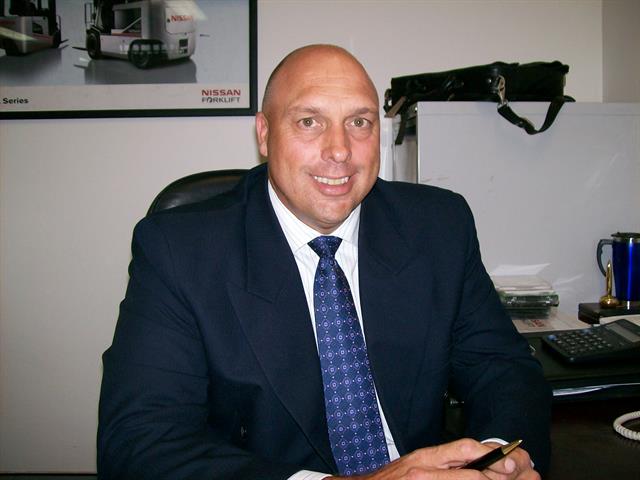 Steve Stewart, general manager of Powerlift Nissan. |
With close to 25 years experience in the forklift industry, Steve Stewart, general manager of Powerlift Nissan, believes that a fundamental shift in the way the industry operates in Australia is vital for survival.
"Currently, many forklift suppliers are under pressure to supply volume to the factory, generally an overseas manufacturer, with what appears to be little regard for actually making money locally," he says.
As a result, Stewart says, purchase and rental prices have plummeted to an all-time low. "Due to the volume of new trucks flooding the market, there is an oversupply of second-hand, ex-rental trucks available and the value of these units is suffering accordingly," he tells
Forkliftaction.com News.
He adds that the recent forced liquidation of smaller independent forklift companies will continue as they try to compete with the bigger players and end up with rental machines still under finance, back in their yards with an unrealistic residual position attached to them. "This often forces small businesses to sell the machines at a loss or sit on the unit until the market recovers.
"It's time the industry had a good hard look at itself and started to try to achieve reasonable margins for machines that are faster, safer and more advanced than ever before."
"The industry needs to understand that you can't bank marketshare - you have to run your business in such a way that you can still make a profit and support your customers," he warns.
Born and bred in Sydney, Stewart started his career in the forklift industry in 1983 when he joined Crown. After 15 years, he left to run a Mercedes-Benz dealership for four years, before returning to the industry in 2002 and joining Powerlift Nissan.
His philosophy on business is that nothing replaces hard work. "People skills are also vital in this business along with skills in solution-based selling."
Stewart expresses concern about the industry's ability to attract, train and retain young people. "It's a hard business that requires intensive training to produce personnel who understand what selling is really about."
He acknowledges that the current tight labour market makes it easier for young people to walk away from the industry in pursuit of more glamorous options.
The resources boom has also resulted in skilled technicians moving to remote mining areas, which impacts heavily on the industry's ability to hold onto qualified service staff. "It's getting to the stage where companies are forced to go overseas to source skilled mechanics to come to Australia to service forklifts."
While these challenges remain, Stewart, who is vice president of the Australian Industrial Truck Association (AITA), is confident that the Australian forklift industry is on top of other issues such as emissions, safety standards, and technical requirements. "We have a representative from Australia who attends international meetings to determine the setting of worldwide standards for forklifts."